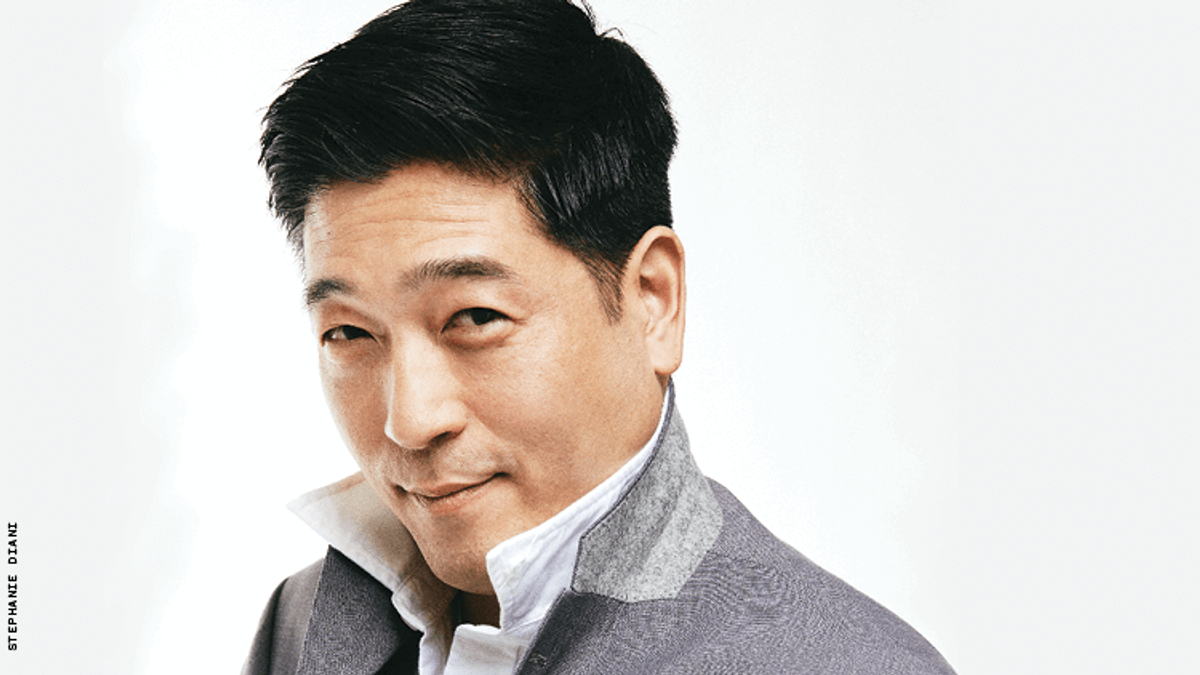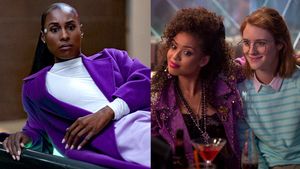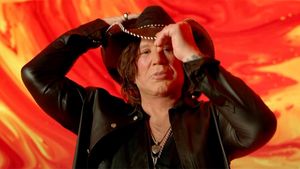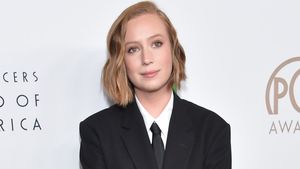Actor Peter Kim first met playwright Radha Blank around 10 years ago when he was recruited to be a dialect coach for one of her projects. The pair "hit it off right off the bat," he recalls. Blank developed a creative rapport with him, asking for his opinions.
The pair's "chemistry" in this meeting established a working relationship that led to The 40-Year-Old Version, Netflix's critically acclaimed comedy from Lena Waithe's Hillman Grad Productions. Directed and written by Blank, the film is inspired by her life and the struggles she faced as a Black woman trying to retain her authentic voice in the entertainment industry.
Kim was an early player in Version's journey, which began as an idea for a web series and then developed into a film through a Sundance Institute lab. When Blank asked Kim to participate, it wasn't for dialect purposes. She had developed a character, Archie, inspired by Kim.
There has never been a relationship in film quite like that of the (fictionalized) Radha, a playwright who turns to rapping as she approaches 40, and Archie, her agent, cheerleader, and childhood best friend, who like Kim is gay and of Korean descent. In film, "when does that ever happen?" he asks.
Kim was able to help make Archie three-dimensional by weaving in his own backstory as a child of conservative immigrants. The character is also a breakthrough for intersectional visibility. "We get to see a whole human being who is queer, who is Korean-American, who is a man," Kim says.
Portraying Archie is a highlight in Kim's career, which is no small feat. The New York-based artist has worked in the entertainment industry for nearly 30 years. His credits span from 1995's Hackers to recent LGBTQ+ darlings like Cubby and Saturday Church.
For Kim, Version was special. "Not only do I get this part that was created for me, but I think it's important to know another person of color created a space for me... and gave me an opportunity to shine."
The journey of the film's evolution with Blank has also been a trip. "It's been exciting to be by her side," says Kim. Early on, he "knew the movie was going to be relevant." But the Black Lives Matter movement has made its themes of an artist challenging racism in white institutions -- in this case, off-Broadway -- all the more relevant.
Kim, an associate producer with the National Asian American Theatre Company and a founding member of Mr. Miyagi's Theatre Company, is no stranger to the bigotry of New York City's theater world. "There are still so many barriers and ceilings to break in terms of being an Asian-American actor," he stresses. Many of off-Broadway's acclaimed nonprofit theater companies are predominantly white and "you do feel othered in those spaces. Because you feel like you're a visitor."
Ironically, Kim has tallied more inclusivity in mainstream Broadway shows, since they have a financial incentive to appeal to diverse audiences. Many nonprofits, operating with millions in their budgets, are not doing this work. Kim hopes that in the midst of America's racial reckoning, they "are looking within and trying to dismantle the white supremacy within their own institutions," instead of continuing to "relegate their BIPOC stories to their smallest, least-funded spaces."
Theatergoers are also to blame for not seeking out more diversity, Kim argues. "There are people who don't go below 42nd Street to see theater...possibly the most 'liberal' woke demographic you would think," Kim laments. "And I'm not talking about the people who are coming in from out of town. I'm talking about New Yorkers."
Version offers viewers a satirical vision of this world, culminating in a hilarious musical number that skewers how institutional racism appropriates the talents of people of color and then warps them in the name of commerce. "I hope it provides a balm in some way for those who are watching it, because it is also very funny," Kim says. "It has a lot of heart."













































































Fans thirsting over Chris Colfer's sexy new muscles for Coachella